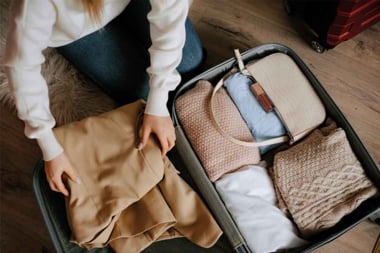Don't Rely on Sunscreen Alone to Protect Your Skin

Take sunscreen products claims that they prevent skin aging and cancer with a grain of salt. Find out how to protect your skin from harmful UVA and UVB rays.
As we prepare to spend time in the great outdoors this long weekend, we’re anxiously watching the weather forecast. A sunny, warm weekend will allow us to cut grass, plant a vegetable garden, maybe even head to the beach. But before we head outside, we need to protect ourselves from harmful UV rays.
For most of us, that means slathering on the sunscreen. Many sunscreen products claim to prevent skin damage, aging, and cancer. But do sunscreens provide the protection they claim?
What does sunscreen do?
Originally formulated for US military personnel to help prevent sunburn, most of us use sunscreen to do just that. Sunscreen allows us to stay outside longer while we tan, or avoid tanning or burning, depending on the strength of the sunburn protection factor (SPF) and how much time we spend outside.
UVB versus UVA
Studies show that most sunscreens do a good job of protecting us from UVB rays, but many don’t protect us from harmful UVA rays. UVB rays penetrate the outer layer of the skin, causing our skin to burn. UVA rays penetrate deeper into the skin, causing a different type of DNA damage than UVB rays.
Sunscreen makers used to believe that sunburns were the main cause of skin cancer, so products that contained UVB protection to prevent burning also helped to prevent cancer. Now many experts believe that UVA rays, as well as UVB, increase our risk for melanoma.
Increase in skin cancer
Sunscreen products sold over the last three decades that didn’t block UVA rays may not have provided cancer protection. Unwittingly, consumers who felt they were protected from the sun spent more time in the sun. According to the Environmental Working Group (EWG), this could be why skin cancer rates have continued to rise while more people use sunscreen than ever before.
What the research says
According to the International Agency for Research on Cancer (IARC), sunscreen
- may decrease the risk of squamous cell carcinoma
- has no demonstrated effect on preventing basal cell carcinoma
- may increase the risk of melanoma when we’re exposed to sun for long periods of time
What can you do to protect yourself?
- Choose sunscreen carefully (follow the guidelines of yesterday’s alive Health blog). Be sure to choose a product that contains zinc, titanium, avobenzone, or Mexoryl SX, for UVA protection.
- Choose a cream rather than a spray or powder, and reapply frequently.
- Monitor your time in the sun carefully to avoid burning.
- Plan outdoor activities for early morning or late afternoon/evening.
- Wear a hat, shirt, shorts, and pants to protect yourself from UV rays.
- Seek out shade or where there is none, create your own with a beach umbrella, for instance.
- Always wear sunglasses to protect your eyes from UV rays.
What about kids?
- Follow the same guidelines for children.
- Choose a product formulated for babies and kids (check out safe products on the EWG website).
- Test sunscreen on a small patch of skin inside your child’s wrist the day before you plan to use it in case a rash or irritation develops. If it does, try a different product.
- Slather on the sunscreen, and reapply often if your child is in the water or sweating a lot.




